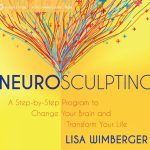There is likely an ethical debate that could ensue around the art of removing or rewriting unwanted memories. Perhaps words like denial or delusion come to mind. But let’s pretend for a moment that neither of these things is an issue. IF our memories keep us locked in negative patterns, AND we know that each time we remember we are actually creating a reconstruction of the event rather than having a direct experience of it, then wouldn’t it be beneficial to be able to change our negative stories as a way to improve our behavior, become more compassionate, and move out of fight-or-flight response?
According to a study published in the journal Neuron, we have two unique ways in which we can forget unwanted memories. One is the commonly known method of suppression, which tends to still have physical and mental repercussions over time. The other method is memory substitution which can be targeted, created, and used to engage the “caudal prefrontal cortex and midventrolateral prefrontal cortex—two regions involved in bringing specific memories into awareness in the presence of distracting memories.” If you could exercise the very areas of the brain responsible for your ability to empathize, find compassion, creatively problem solve and connect more deeply with others, would you? Perhaps rewriting our negative stories can help us do just that!



